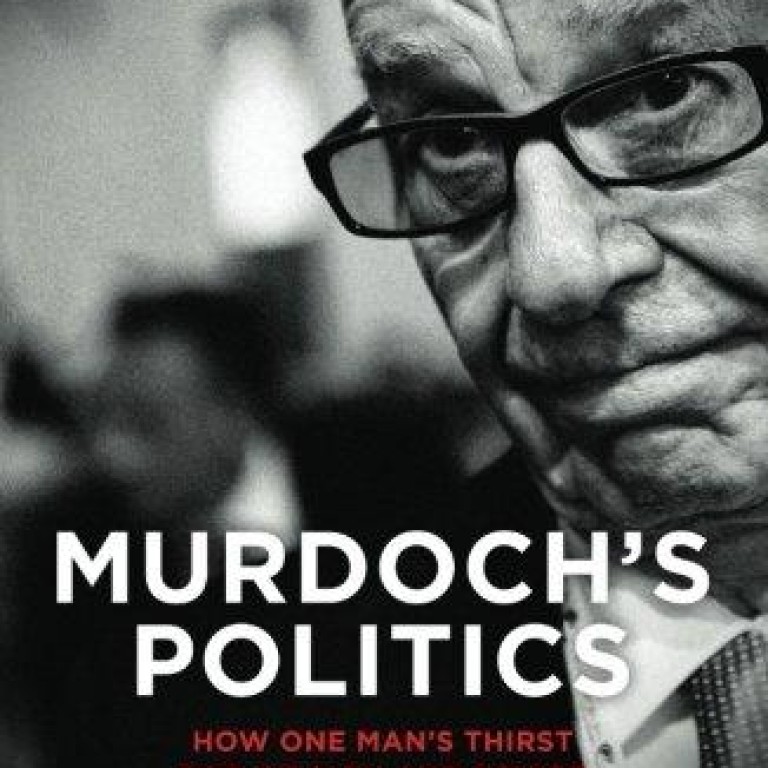
Book review: Murdoch's Politics, by David McKnight
How politically important is Rupert Murdoch? After more than half a century of his manoeuvrings, carefully and tellingly itemised in this book, it may seem naive even to ask the question.
by David McKnight
Pluto
How politically important is Rupert Murdoch? After more than half a century of his manoeuvrings, carefully and tellingly itemised in this book, it may seem naive even to ask the question.

"So far there is no sign of Rupert Murdoch genuinely stepping aside" from his intertwined political and business activities, David McKnight writes. But this book, despite its subtitle, is more about Murdoch's past than his present.
The main arc of the story begins in Australia in the 1950s. But it is less interested in his life story and business ascent than most Murdoch volumes, and clearer and more pacy as a result. Its subject is political leverage: how Murdoch got it, exercised it and got more of it. McKnight extracts most of his Murdoch quotes and facts from easily available sources. Yet the portrait he builds feels fresh and strong, free of the usual biographers' ruminations on the Murdoch mystique and their love/hate feelings towards him. Significantly McKnight shows that radical American Republicanism had more influence on Murdoch than radical British Conservatism. From Richard Nixon's angry, embattled presidency, he took the notion that a "liberal elite" - rather than a right-wing business elite made up of people like Murdoch - dominated Western democracies. From Ronald Reagan's much more successful political formula, Murdoch borrowed shrill anti-communism, a sometimes glib optimism about capitalism and a belief in America's right to world supremacy. In 1985 he became an American citizen.
His admiration for former British prime minister Margaret Thatcher was less total. According to McKnight, "Thatcher and Murdoch had a deep mutual regard, more sincere on her part than his".
The book lays out well how Murdoch transmits his political desires, both within his conglomerate, News Corporation, and far beyond. Executives are chosen for their ability and willingness to anticipate Murdoch's thinking.
But there is a deeper mystery. What sort of political animal is Murdoch really? A crafty player of the game for its own sake; a self-interested businessman simply seeking more corporate freedom; a restless seeker after heroes and ideological certainties; a chippy Anglophobe; a rebel against an establishment father; or just a powerful, opinionated man surrounded by unquestioning courtiers, a little like Prince Charles?
Murdoch is probably a bit of all these, and McKnight doesn't quite establish the respective proportions. But as an anatomy and record of the reign of Murdoch, this book is brave and valuable. And one day, when Murdoch is gone, it will help explain why so many obeyed him.
